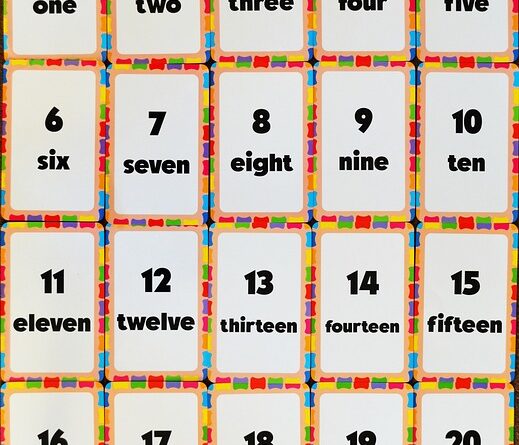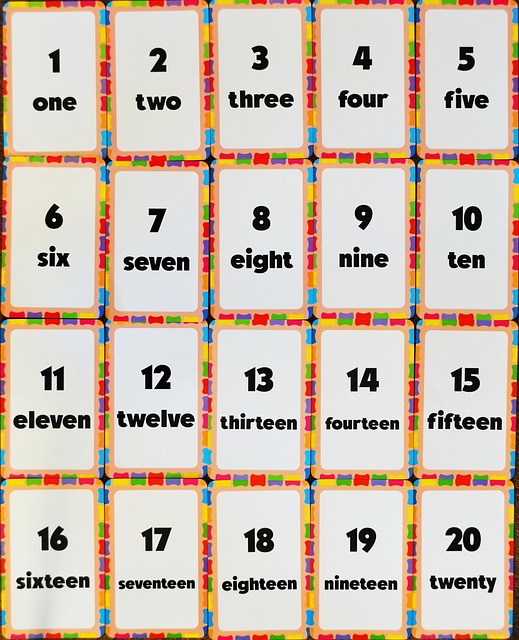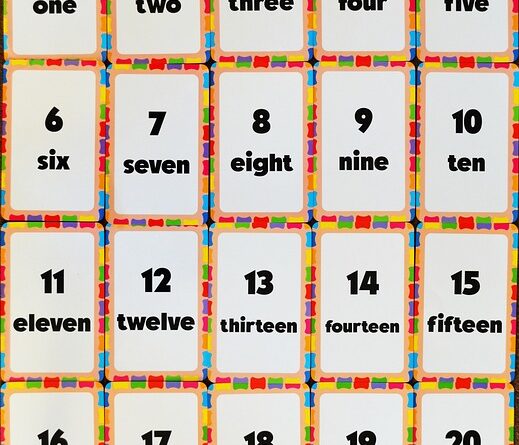
Have you ever come across a word that you just couldn’t pronounce? Maybe it was a long and complicated word that left you feeling tongue-tied. Well, worry no more! In this article, we’ll discuss how to pronounce difficult words and help you master even the trickiest of pronunciations. So, if you’re ready to expand your vocabulary and impress your friends with your linguistic skills, keep reading!
Learning how to pronounce difficult words can be a daunting task, but with a few tricks and tips, you’ll soon be speaking with confidence. Whether it’s those pesky silent letters or unfamiliar sounds, we’ve got you covered. In this article, we’ll break down the pronunciation of challenging words into manageable steps, providing you with clear and easy-to-follow instructions. So, whether you’re struggling with the pronunciation of “onomatopoeia” or “caramel,” we’ve got all the guidance you need. Stay tuned to learn more about pronouncing those tongue-twisting words!

Table of Contents
How to Pronounce Difficult Words
Understanding Pronunciation
Proper pronunciation plays a crucial role in effective communication, as it ensures that your message is conveyed clearly and accurately. Whether you are learning a foreign language or trying to improve your pronunciation in your native language, understanding the nuances of pronunciation is key.
Importance of Correct Pronunciation
Correct pronunciation is essential for several reasons. Firstly, it prevents miscommunication and confusion. Imagine trying to ask for directions in a foreign country but mispronouncing the street name, leading to confusion and misunderstanding. Secondly, proper pronunciation enhances your credibility and professionalism, especially in formal settings such as job interviews or presentations. Lastly, it allows you to fully express yourself and communicate your ideas effectively without any barriers.
Differences in Pronunciation
Even within the same language, pronunciation can vary significantly. Accents, dialects, and regional variations contribute to differences in pronunciation. For example, in English, there are variations between American English and British English, such as the pronunciation of words like “schedule” or “tomato.” Understanding and being aware of these differences can help you navigate through various linguistic contexts.
Regional Variations in Pronunciation
In addition to differences between countries, there can also be variations in pronunciation within specific regions or cities. These variations often exist due to cultural and historical factors. For example, in the United States, there are differences in pronunciation between the Northeast, the South, and the Midwest. Familiarizing yourself with these regional variations can help you better understand native speakers and adapt your pronunciation accordingly.
Challenges in Pronouncing Difficult Words
While some words may roll off the tongue effortlessly, others can pose a challenge. Difficult words can be characterized by their length, complex syllabic structures, the presence of silent letters, or their foreign origin. Overcoming these pronunciation obstacles requires specific techniques and strategies.
Recognizing Difficult Words
Identifying difficult words is the first step towards improving their pronunciation. These words can be ones that you stumble upon regularly or those that others have pointed out as problematic for you. Keeping a list of these words will help you focus your efforts on practicing their pronunciation.
Common Difficulties Faced
Certain sounds or combinations of sounds can prove troublesome for many individuals. Some common difficulties include distinguishing between similar sounds like /r/ and /l/ in English or properly pronouncing the trilled /r/ in Spanish. Identifying such difficulties will allow you to concentrate on specific areas that require improvement.
Causes of Mispronunciation
Mispronunciation can be caused by various factors such as unfamiliarity with certain sounds, lack of exposure to native speakers, or the influence of one’s native language on pronunciation. Understanding the root causes of mispronunciation can help you address them more effectively.
Techniques for Improving Pronunciation
There are several techniques and strategies that can help you improve your pronunciation.
Phonetic Alphabet
Familiarizing yourself with the International Phonetic Alphabet (IPA) can be immensely helpful. The IPA consists of symbols that represent each sound in a language. By consulting an IPA chart, you can accurately identify and replicate the sounds of difficult words.
Breaking Down Words Phonetically
Breaking down words phonetically involves dividing them into smaller, more manageable phonetic units. By understanding the pronunciation of individual sounds within a word, you can then assemble them to correctly pronounce the word as a whole. Online resources and dictionaries often provide phonetic guides for words, further aiding your pronunciation practice.
Mimicking Native Speakers
One effective way to improve pronunciation is to mimic native speakers. Pay close attention to their intonation, stress patterns, and rhythm. By imitating their speech, you can gradually absorb and incorporate the correct pronunciation into your own speech.
Practicing Tongue Twisters
Tongue twisters are fun and challenging exercises that can help improve your pronunciation skills. They often involve combinations of sounds or phrases that require precision and clarity when spoken. Regular practice of tongue twisters can enhance your ability to articulate sounds accurately and develop greater control over your tongue and lips.
Resources for Learning Pronunciation
Numerous resources are available to assist you in improving your pronunciation.
Online Pronunciation Guides
Online pronunciation guides provide audio recordings and visual representations of words, allowing you to observe and listen to correct pronunciation. Websites like Forvo, Pronunciation Studio, and Pronunciator offer extensive databases of words and their pronunciations.
Mobile Apps for Pronunciation
Mobile apps such as ELSA Speak, FluentU, and Rosetta Stone offer pronunciation exercises, interactive lessons, and feedback to help you refine your pronunciation skills on the go. These apps often utilize speech recognition technology to analyze and assess your pronunciation.
Dictionaries with Pronunciation
Many dictionaries now include audio recordings of word pronunciations. Merriam-Webster, Oxford English Dictionary, and Cambridge Dictionary are widely used resources that provide accurate and reliable pronunciations for thousands of words.
Speech Therapy Services
For individuals facing persistent pronunciation challenges or those with certain speech disorders, seeking professional help from a speech therapist can be beneficial. Speech therapy services can provide personalized guidance and exercises to target specific pronunciation difficulties.
Specific Difficult Words and Their Pronunciation
Certain categories of words present unique challenges when it comes to pronunciation.
Polysyllabic Words
Polysyllabic words, or words with multiple syllables, can be daunting to pronounce, especially when they contain uncommon or intricate combinations of sounds. Breaking down these words into smaller syllables and practicing each one can help you master their pronunciation.
Words with Silent Letters
Words with silent letters, such as “knight” or “psychology,” can trip up even the most proficient speakers. Familiarizing yourself with the patterns and rules governing silent letters in a language can aid in accurately pronouncing such words.
Foreign Words
Foreign words borrowed from other languages often pose pronunciation challenges. Consulting reliable resources, such as language textbooks or native speakers, can help in understanding the correct pronunciation of these words.
Technical Terminology
Technical terminology specific to certain industries or fields can be challenging to pronounce correctly. Consulting industry-specific resources, attending workshops, or seeking guidance from professionals in the field can assist in mastering the pronunciation of technical terms.
Tips for Overcoming Pronunciation Challenges
Here are some helpful suggestions for overcoming pronunciation challenges:
Start with Basic Words
Begin by practicing the pronunciation of basic words and sounds. Mastering these foundational elements will provide a strong base for tackling more complex words later on.
Work on Problematic Sounds
Identify the sounds that pose the most difficulty for you and focus on improving your articulation of those sounds. For example, if the trilled /r/ in Spanish presents a challenge, practice it consistently until you can produce the sound accurately.
Record and Playback for Self-assessment
Recording yourself while practicing pronunciation exercises allows you to evaluate your progress objectively. By comparing your recordings to native speakers’ pronunciation or seeking feedback from language instructors, you can identify areas for improvement and work towards refining your pronunciation.
Seek Feedback from Native Speakers
Native speakers can provide valuable insights and feedback on your pronunciation. Engaging in conversations with native speakers, joining language exchange programs, or taking language classes with qualified instructors can expose you to authentic pronunciation models and help you adjust your pronunciation accordingly.
Commonly Mispronounced Words
Certain words tend to be commonly mispronounced due to their spelling or unusual sound combinations.
Mispronunciation Examples
Examples of commonly mispronounced words include “pronunciation” (pronounced as pro-nuh-ns-ee-ey-shuh n), “nuclear” (pronounced as noo-klee-er), and “Wednesday” (pronounced as wenz-dey).
Word List and Correct Pronunciation
- Pronunciation – pro-nuh-ns-ee-ey-shuh n
- Nuclear – noo-klee-er
- Wednesday – wenz-dey
Ensure that you refer to reliable pronunciation resources to learn the correct pronunciation of these and other frequently mispronounced words.
Pronunciation Exercises for Self-practice
Practicing specific exercises can enhance your pronunciation skills and build confidence in your speaking abilities.
Focused Sound Practice
Identify the sounds that are particularly challenging for you and practice them in isolation. Repeat words or phrases that contain those sounds and gradually incorporate them into longer sentences.
Sentence Pronunciation Drills
Select sentences that contain a variety of difficult sounds or word combinations and practice pronouncing them with clarity and accuracy. Repeat the sentences multiple times to refine your pronunciation.
Pronunciation Games and Activities
Make learning pronunciation enjoyable by engaging in games or activities that focus on pronunciation. Tongue twisters, pronunciation quizzes, or pronunciation challenges with friends and language partners can provide a fun way to improve your spoken skills.
Benefits of Improving Pronunciation
Taking the time and effort to improve your pronunciation can have a significant impact on your communication and overall language skills.
Enhanced Communication Skills
Improved pronunciation allows you to convey your thoughts and ideas more effectively, ensuring that your message is accurately understood by others. It enables you to engage in meaningful conversations without relying on gestures or clarifications.
Boosted Confidence
Mastering pronunciation boosts your confidence when speaking in public or interacting with native speakers. Knowing that you can pronounce words correctly enhances your self-assurance and encourages greater participation in conversations and social interactions.
Improved Job Prospects
Many professions require clear and effective communication skills. By refining your pronunciation, you increase your chances of success in job interviews and professional settings where effective verbal communication is crucial.
Conclusion
Improving pronunciation is an ongoing process that requires continuous practice and dedication. By understanding the importance of correct pronunciation, recognizing the challenges you face, and utilizing appropriate techniques and resources, you can overcome pronunciation obstacles. Enhancing your pronunciation skills will not only improve your communication abilities but also facilitate cultural exchange and overcome language barriers.
Remember, practice makes perfect, so embrace the journey of pronunciation improvement and enjoy the rewards it brings to your language learning journey.







